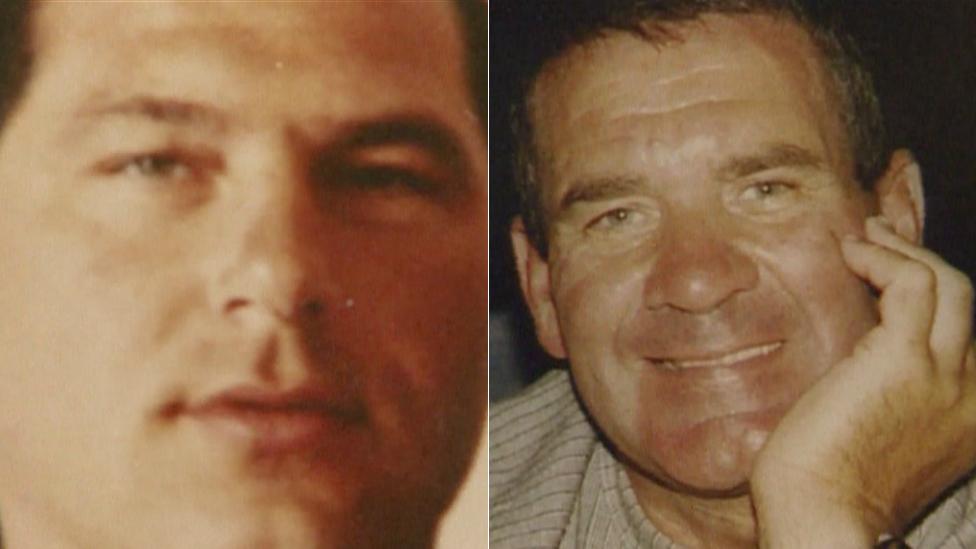'Essex Boys' murders: Jack Whomes has sentence reduced
- Published

Jack Whomes (left) and Michael Steele were jailed in 1998
One of the notorious "Essex Boys" killers has had his prison sentence reduced because of his "exemplary" behaviour behind bars.
Jack Whomes, 57, was jailed for life in 1998 for the execution of three men on isolated farmland at Rettendon, in December 1995.
His sentence has been cut from 25 to just over 22 years, allowing him to apply for parole as early as 2020.
A High Court judge said he had shown "exceptional progress" in prison.
In one of Britain's most notorious gangland killings, drug smuggler Whomes was convicted of killing three men in a row over drugs.
Patrick Tate, Anthony Tucker and Craig Rolfe were gunned down with a pump-action shotgun after their Range Rover was ambushed in Rettendon.

Craig Rolfe, Tony Tucker and Pat Tate were all shot in the head
Whomes's accomplice Michael Steele lured the trio to the country lane and ordered him to carry out the triple shooting, the original trial was told.
The case gained national attention and became known as the "Essex Boys murders" after it inspired a film of that name starring Sean Bean.
Steele, of Great Bentley, Essex, and Whomes, of Brockford, Suffolk, were both jailed for life at the Old Bailey in January 1998.
In 2006, the killers failed in renewed appeals against their murder convictions.
Rettendon murders 20 years on
Reducing Whomes's sentence, Mrs Justice Cheema-Grubb described the 1995 murders as a "dreadful crime" but said he had "demonstrated exceptional progress" during his term at Wayland Prison in Norfolk.
She said he had taught himself to read and write, achieved academic qualifications and work skills, and "shown a natural ability to teach other prisoners".
Whomes had also made a bed for his niece and writing bureau for his daughter in the jail carpentry shop, the judge said.
He was praised by the Prison Review Board for his "consistently calm and mature behaviour, self-education and dignified way".
Prison authorities were unanimous in saying he deserved recognition for his "unusual degree of progress" in custody, the court heard.
- Published12 January 2018

- Published6 January 2016

- Published6 December 2015
- Published6 February 2013
